Director Michael Gracey on why he turned pop star Robbie Williams into a CGI ape for his dark, intense musical biopic
There was a point in pre-production on 2017’s The Greatest Showman when star Hugh Jackman got cold feet about the planned musical numbers, and the film’s debut feature director Michael Gracey became fearful the movie would be shut down as a result.
“I knew I had to convince Hugh that this music was great,” recalls the Australian filmmaker, “and the only thought that came to my head was, ‘I’ve got to get in touch with Robbie Williams.’ Because whenever I was talking about PT Barnum holding the audience in the palm of his hand, Hugh would go, ‘Like Robbie Williams.’ It was his go-to.”
![Michael Gracey. Credit Alex Fry[69]](https://d1nslcd7m2225b.cloudfront.net/Pictures/480xAny/2/9/4/1438294_michaelgracey.creditalexfry69_262187.jpg)
Fortunately for Gracey, his lawyer’s daughter was friends with Williams’ wife, US actress Ayda Field, and an introduction was made. He met Williams, who made his name as a member of boy band Take That before becoming a hugely successful solo artist, at his home in Los Angeles one Sunday at noon.
“He answered the door, bleary-eyed, in his boxer shorts, looking like he just woke up,” remembers Gracey, who explained he was working on a musical about PT Barnum and would love to play the songs to Williams.
The pair decamped to the singer’s home recording studio and Gracey made his case. “I tell him the story, I play him the music and I can see he’s getting into it. He’s tapping his foot, clapping his hands. At the end I said to him, ‘It’s one thing for me to say to Hugh Jackman, “This is what Robbie thought of the music.” It’s another thing entirely for him to hear it from you, so do you mind if I video you and you talk to camera as if you’re talking to Hugh?’”
Williams agreed, with Gracey filming him on his iPhone. “That video convinced Hugh to move forward with the music and got the film back on track.”
The Greatest Showman went on to take almost $500m at the global box office, and when Gracey would visit Los Angeles from Melbourne, he and Williams would catch up. Gracey was amazed at the stories Williams would tell of his life, and one day suggested they put them down in his studio.
“I said, ‘I don’t know what for, it may just be for you to listen to in a nursing home one day, but while you still remember these details, we should record them.’ So that’s what we did.”
A steady process
This went on for a year and a half, with Gracey beginning to edit and reorder the recordings to see “if there was enough there to tell a story, almost like a radio play”. And while Williams has never been reluctant to talk about himself – there have been books as well as a recent Netflix documentary series – it was the singer’s relationship with his father that convinced Gracey this could be a film.
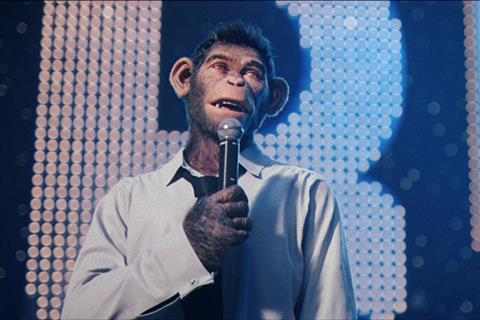
Not that he shared his idea of a film with Williams initially. “I didn’t want to be so bold, knowing how long it takes for scripts to be developed, how long it takes for films to be made – and knowing I wanted to do something unique, because there are a lot of musical biopics out there.”
But inspiration struck as Gracey listened back to their recordings. “Time and time again he would say things like, ‘I was just a performing monkey.’ He said that phrase enough times that I was, ‘Oh man, that’s how he sees himself.’ And because he’s the one telling the story, the idea of him being that performing monkey was a wonderful way to engage with him as a character.”
Co-written by Gracey, Oliver Cole and Simon Gleeson, Better Man follows Williams from his impoverished childhood in Stoke-on-Trent in the West Midlands region of England, during which his comedian/singer father Pete Conway (played by Steve Pemberton) walked out on the family to pursue his own dreams of stardom, to his time in Take That, his relationship with pop star Nicole Appleton (Raechelle Banno) and his early-2000s megastardom – all the while battling his self-destructive demons.
Gracey’s bold decision to render Williams (played by Jonno Davies) as a CGI monkey throughout the entirety of the film was only revealed when the film premiered in Telluride Film Festival before moving on to Toronto. It is being released in the US on December 25 by Paramount Pictures, and in the UK a day later through Entertainment Film.
“It’s almost like you see a more-faithful version of Rob in the monkey than if it was an actor playing him straight,” says Gracey. “I don’t know why that is. I think you empathise more with animals than humans in cinema. But it allowed me to delve into his mental health issues and find a way of illustrating that. It became easier to step between reality and fantasy once you’re portraying him as a monkey. Narratively, it opened the film up.”
The decision also had a huge monetary impact for the independent film, which was eventually majority equity-funded by China’s Sina Studios, Singapore’s Facing East and Mid March, with additional financing from MarksX Group, Zero Gravity, Aperture Media Finance and Comerica (Paramount came in for North America in November 2023). “The budget doubled,” says Gracey, who previously worked in visual effects.
To help matters, New Zealand-based effects house Weta Workshop, which created Gollum for The Lord Of The Rings and worked on the Avatar films as well as the recent Planet Of The Apes series and was responsible for creating Better Man’s simian Robbie, opened a studio in Melbourne to take advantage of Australia’s tax rebates. “Being from Melbourne, I’m incredibly proud that studio is staying,” says Gracey.
The choice to make Williams a digital ape also allowed a world of possibilities when it came to casting the role. “We weren’t limited to male or female performers,” says Gracey. “It needed to be the person who can embody Rob in a way that is going to give a powerhouse performance.”
For the most part, Williams is played by UK actor Davies, whose entire body was then digitally replaced. “He brought Robbie to life in a way that was breathtaking on set,” continues Gracey. “People watching Jonno, including Rob, were in awe.”
Dance party
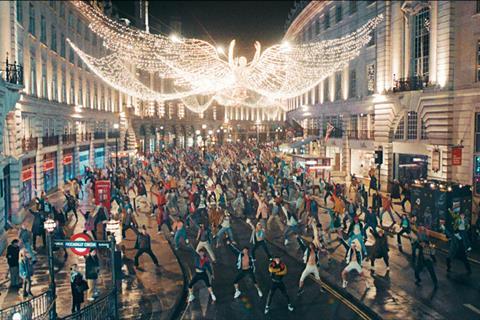
One of the film’s major musical numbers takes place after Take That are signed to BMG Records and the band sing and dance to Williams’ future number-one hit ‘Rock DJ’ along London’s Regent Street.
“I would always walk down Regent Street and wonder why no-one had done a musical number there,” notes Gracey. “It is so spectacular, so iconic. It’s got the curve all the way down. In trying to do it, I learned why!”
The sequence was shot over four nights with 500 dancers, a bus and five mobility scooters, and took a year and a half to prepare. “We rehearsed it in a huge hangar outside London,” says the director, “but it was a very high-pressure shoot because we were very aware that if any night didn’t go to plan, we didn’t just lose that night, we’d lose the whole number.”
Two days before they were due to film, however, Queen Elizabeth II died. “We were told by The Crown Estate that we would not be singing and dancing down Regent Street as planned. There was 10 days of mourning, the funeral and then the King’s coronation.”
In fact, it would be another five months before the production was allowed back – and costs incurred required some fresh financing. “It pushed the delivery of the film,” says Gracey. “Then you get into all sorts with the bond and the banks. It caused pain in terms of production and post-production but, every time I watch it, I go, ‘It was worth it.’”
Another of Better Man’s musical numbers takes place at UK open-air concert venue Knebworth where Williams sings his iconic anthem ‘Let Me Entertain You’ – a sequence that quickly spirals into fantasy with a mass monkey brawl like something out of Planet Of The Apes. The production recreated Knebworth in Serbia, with 2,000 extras, before Weta swelled the onscreen crowd to 125,000 and turned them into ape Robbies who attack each other.
“He’s dealing with what’s going on in his mind, which escalates throughout the film in terms of his self-loathing, self-hatred and the judgment that is a constant part of the voices in his head,” says Gracey. “When we get to Knebworth, it becomes a physical fight.”
Warts and all
Prior to directing The Greatest Showman, Gracey spent six years working on Elton John biopic Rocketman but had to bow out for scheduling reasons. “The very first meeting I had with Elton, he said, ‘I don’t want to do a puff piece. I want it to be warts and all,’” says Gracey.
He takes a similar approach with Better Man, which delves into Williams’ depression, addiction to drink and drugs, and more. “I don’t think any studio would make this film but, even if you made it with a studio, it would get watered down because that’s what happens. Rob, to his credit, didn’t want that, he wanted to lay it all out there.”
But it is one thing to talk about your problems, and quite another to see them projected on a cinema screen. “[Rob] said it took him three viewings of the film before he could really feel something,” reveals Gracey, who used some of Williams’ initial recordings as part of the film’s voiceover.
“Credit to Rob, he didn’t change a single edit. Obviously, he read the script, but words on a page are very different to watching it and there are scenes in there where he comes off badly. I’m very grateful he is letting this version of the film be told. It’s what sets the film apart and makes it unique. Aside from the monkey.”






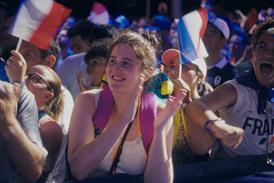
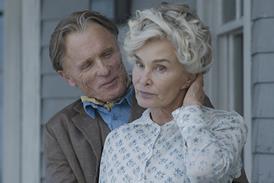




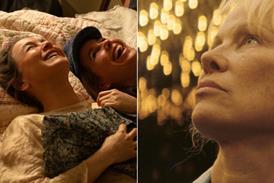
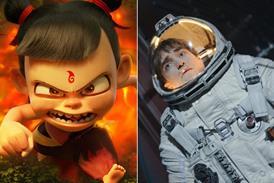
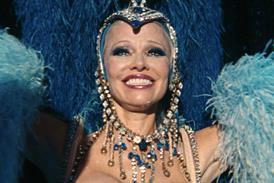




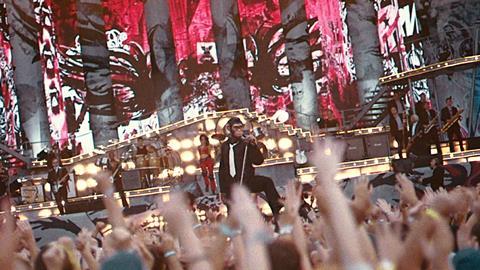






No comments yet